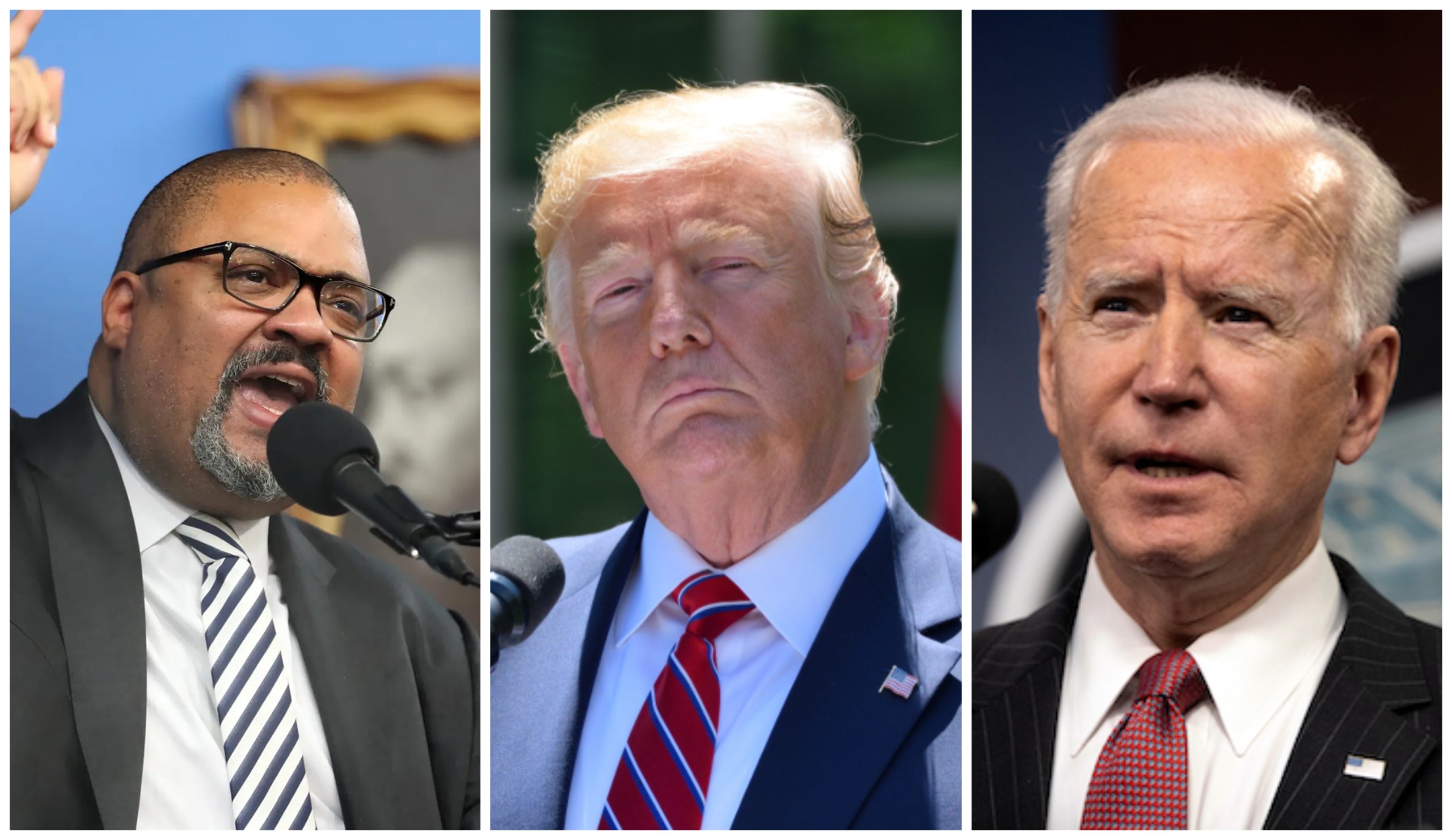Politics
Renowned Legal Scholar Rips Alvin Bragg, Calls Trump Case ‘Historic Mistake’

In a bold editorial for the New York Times, Boston University law professor Jed Handelsman Shugerman criticized Manhattan District Attorney Alvin Bragg’s prosecution of former President Donald Trump, labeling it a “historic mistake.” Shugerman’s critique centered on the charges against Trump, which arose from payments made during the 2016 election to allegedly silence allegations of an affair, a move purportedly made to avoid influencing the election outcome.
Shugerman argued that the pursuit of Trump for alleged federal election offenses is a legal overreach. In his opinion piece titled “I Thought the Bragg Case Against Trump Was a Legal Embarrassment. Now I Think It’s a Historic Mistake,” he wrote about his concerns over the vagueness of the allegations and the unprecedented application of state law.
According to Shugerman, “Their vague allegation about ‘a criminal scheme to corrupt the 2016 presidential election’ has me more concerned than ever about their unprecedented use of state law and their persistent avoidance of specifying an election crime or a valid theory of fraud.”
The case against Trump, initially seen as a potential misdemeanor involving falsified business records, has escalated. Bragg’s team has attempted to link these charges to more severe violations of federal election law and state tax fraud. However, Shugerman remains skeptical of the linkage, saying the internal nature of the alleged falsifications and questioning their relevance outside the business context. “A year ago, I wondered how entirely internal business records could be the basis of any fraud if they are not shared with anyone outside the business.”
Shugerman wrote:
Instead of a theory of defrauding state regulators, Mr. Bragg has adopted a weak theory of “election interference,” and Justice Juan Merchan described the case, in his summary of it during jury selection, as an allegation of falsifying business records “to conceal an agreement with others to unlawfully influence the 2016 election.”
As a reality check: It is legal for a candidate to pay for a nondisclosure agreement. Hush money is unseemly, but it is legal. The election law scholar Richard Hasen rightly observed, “Calling it election interference actually cheapens the term and undermines the deadly serious charges in the real election interference cases…”
Eight years after the alleged crime itself, it is reasonable to ask if this is more about Manhattan politics than New York law. This case should serve as a cautionary tale about broader prosecutorial abuses in America — and promote bipartisan reforms of our partisan prosecutorial system…
This case is still an embarrassment, in terms of prosecutorial ethics and apparent selectivity. Nevertheless, each side should have its day in court. If convicted, Mr. Trump can fight many other days — and perhaps win — in appellate courts. But if Monday’s opening is a preview of exaggerated allegations, imprecise legal theories and persistently unaddressed problems, the prosecutors might not win a conviction at all.
Further complicating the case are questions about jurisdiction and the applicability of state laws to federal election matters. Shugerman suggested that only federal prosecutors might have the jurisdiction necessary to address the alleged mis-reportings to the Federal Election Commission. “It’s not the crime; it’s the cover-up,” Shugerman reflected, pointing out that this angle might strengthen the state’s jurisdiction over the case.
Regardless of the outcome, the case is likely to be remembered as a contentious and politically charged chapter in the ongoing scrutiny of Trump’s actions before and during his presidency.

